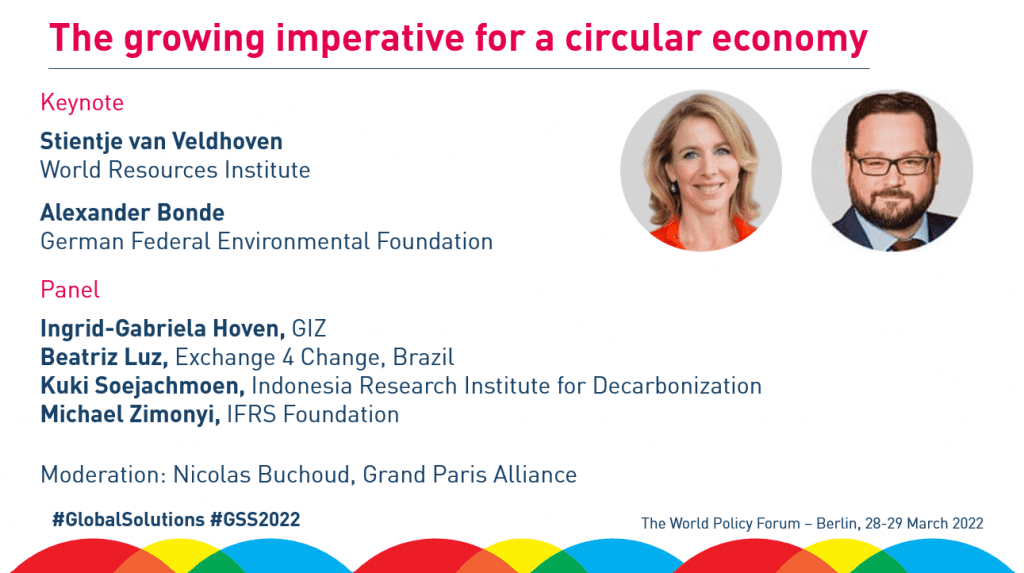Ecological transformation
Summit 2022
Fifty years ago, the United Nations convened the first major conference on international environmental issues in Stockholm, Sweden, and yet fifty years later, climate change and eight additional planetary boundaries are threatened by unsustainable consumption, fueled by ever increasing material extraction, and generating vast amounts of waste and pollution. A circular economy seeks to reverse this trend by reshaping linear consumption through maximizing resource efficiency and designing out waste, thereby recoupling human well-being and economic growth with sustainable consumption within planetary limits. In this way, preservation and regeneration of material value and natural capital become the basis for prosperity.
This session will bring together thought leaders from business, civil society, research, and government to share insights on advancing circular economy across three critical divides: 1. key sectors (industrial, environmental, financial and social); 2. advanced and emerging economies; 3. climate and circular economy agendas. The session will also highlight the importance of data as a key driver, and seek insights on addressing data gaps, which severely limit analytical capabilities across all aspects of circular economy.
While progress toward a circular economy has gained pace over the last decade, adherence to its key principles is uneven. To drive a faster and less fragmented transition, it will be crucial to bridge key divides within a global governance structure that ensures cooperation and accountability, tracks progress, and steers future efforts. The recent resolution endorsed at the UN Environment Assembly (UNEA-5) in Nairobi, calling for an international legally binding agreement by 2024 to end plastic pollution, is a watershed moment for a circular economy. In addressing the full lifecycle of plastic, including its production, design and disposal, the resolution will force a reset in industrial policy and a rethink of consumption patterns. It will require adherence to a global governance structure that resonates across boundaries.
Yet the triumph of multilateralism in Nairobi has been overshadowed by its failure in Ukraine. Indeed, the war’s human cost and its far-reaching implications for global stability, may cause us to question the urgency of a circular economy transition. But geopolitical, social, and environmental considerations are fundamentally interconnected. Surging demand for oil and gas may set climate goals back, which only reinforces the urgency for adapting new modes of production and consumption to drastically reduce resource use and reliance on fossil fuels.








